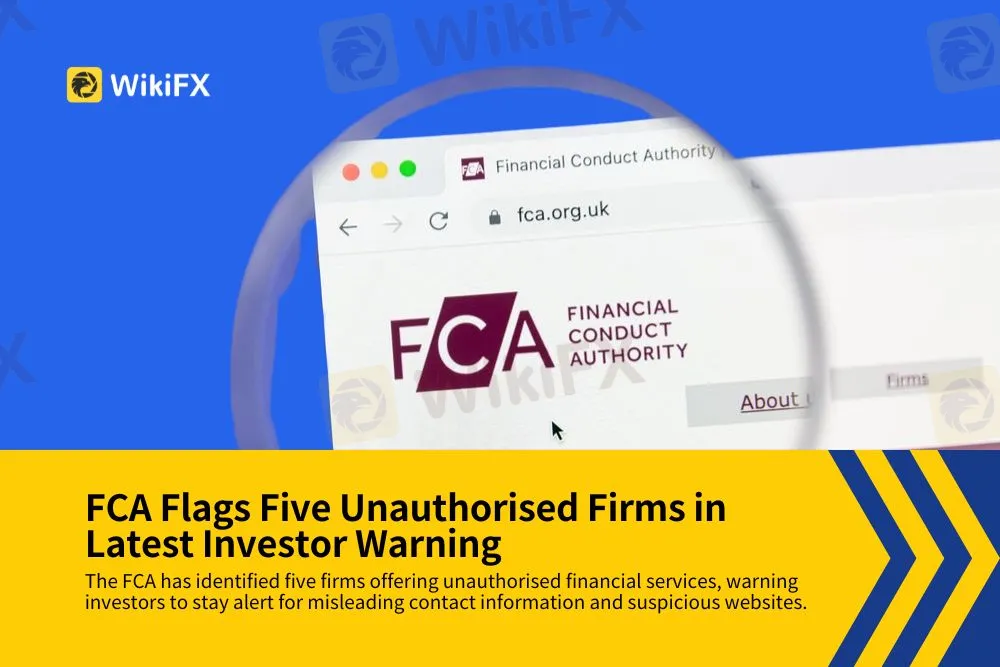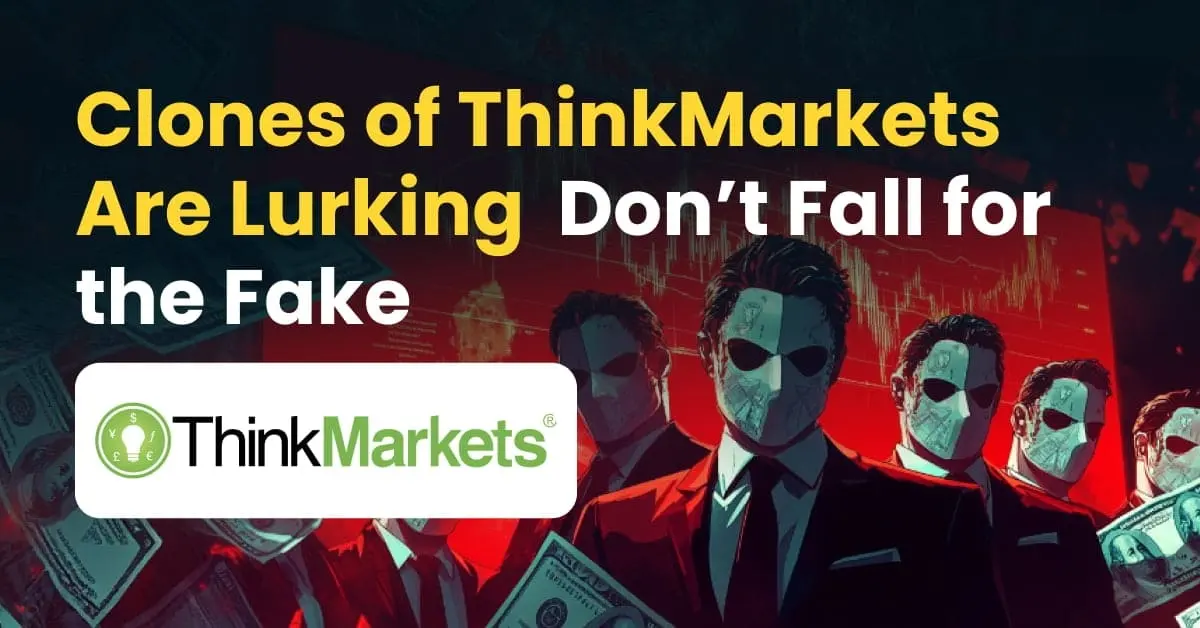简体中文
繁體中文
English
Pусский
日本語
ภาษาไทย
Tiếng Việt
Bahasa Indonesia
Español
हिन्दी
Filippiiniläinen
Français
Deutsch
Português
Türkçe
한국어
العربية
FCA Flags Five Unauthorised Firms in Latest Investor Warning
Abstract:The FCA has identified five firms offering unauthorised financial services, warning investors to stay alert for misleading contact information and suspicious websites.

The UKs Financial Conduct Authority (FCA) has issued fresh warnings against five firms operating without proper authorisation. These companies—Imperial Capital, Thriveassetpartner, Coredgex, and two entities using the name Alure Trading—are offering financial services without regulatory approval, posing a significant risk to investors.
Fraud Behind Familiar Facades
According to the FCA, these firms often disguise their operations by using legitimate-sounding names and fake or misleading contact details. The goal is to make themselves appear credible, sometimes even copying the information of authorised firms or real businesses. In several cases, they provide UK addresses or emails associated with trusted locations to build a false sense of legitimacy.
For example, Thriveassetpartner lists a residential-sounding address in New South Wales, Australia, while Alure Trading claims to operate from Lancashire in the UK. These details may seem genuine but are likely fabricated or misused without permission.
How These Scams Work
Scammers behind such firms typically reach out to unsuspecting individuals online—through websites, email, or social media—offering investment opportunities that seem too good to miss. Once contact is made, they may pressure victims to deposit funds quickly, often promising high returns. Because these firms are not authorised or regulated, victims have no recourse if something goes wrong, such as a refusal to return funds or the sudden disappearance of the platform.
The FCA reiterates that being listed on its warning list means a firm is operating in the UK without the required authorisation. Investing through unauthorised firms is highly risky and could lead to total loss of capital.
Stay Protected: Do Your Research
To avoid falling victim to such scams, it‘s essential to verify the legitimacy of any platform before making financial decisions. Always check the FCA’s Register or use trusted verification tools like WikiFX to confirm a brokers regulatory status, complaint history, and user reviews.
Additionally, be cautious if a firm changes contact details frequently or uses domains that closely resemble those of authorised firms. Even small discrepancies—such as a different email suffix—can be a red flag.
Investors are also advised to avoid pressure tactics, offers that promise unrealistic returns, or situations where a firm refuses to provide full documentation. If in doubt, dont invest.
Disclaimer:
The views in this article only represent the author's personal views, and do not constitute investment advice on this platform. This platform does not guarantee the accuracy, completeness and timeliness of the information in the article, and will not be liable for any loss caused by the use of or reliance on the information in the article.
Read more

The Latest Arrest Cases in Illegal Forex Trading
Explore this story showing the arrests made in two forex trading scams involving INR 7 core and INR 43.83 lakh, respectively.

What are the Major Consequences of Bankruptcy?
Bankruptcy is a common term we hear every day. But what exactly does it mean? Is it a banking crisis or an investment scam? How does it work, and what happens to people's investments? What are the consequences of bankruptcy? This article explores all of these important questions.

IQ Option: Regulation, Warnings, and What Traders Need to Know
A closer look at IQ Option reveals a gap between appearance and reality that could cost traders more than they expect. Let’s take a closer look at this!

Clones of ThinkMarkets Are Lurking | Don’t Fall for the Fake
A silent threat is creeping through the online trading world, and even the most experienced traders may not realise they’re walking straight into it. Several clones of ThinkMarkets, one of the industry’s most trusted brokers, are now circulating online, posing a serious risk to anyone trading on what they think is a legitimate platform.
WikiFX Broker
Latest News
Asian chip stocks rise after Nvidia reclaims title of the world's most valuable company
Nvidia's comeback sparks a rally in Asian chip stocks
CNBC Daily Open: Despite all the uncertainty, the S&P 500 is flirting with record highs — strange times
PU Prime and AFA Announce Partnership at Madrid Event
eToro UK Launches 4% Stock Cashback Card: Earn Up to £1,500 Monthly
EBC Expands ETF CFD Offering & Copy Trading Education Partnership
Gold Prices Continue to Fall as Israel, Iran Agree on Ceasefire
China steps up push to internationalise the yuan as global dollar dominance wavers
Multibank Group Offices: Global Presence and Contact Info
ESMA Proposes Reporting Reforms That Could Cut Costs for Forex Brokers
Currency Calculator


